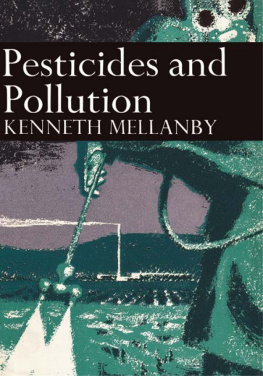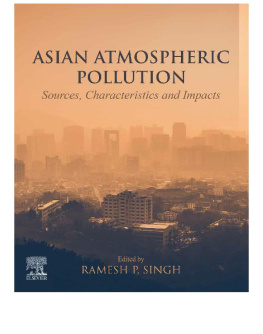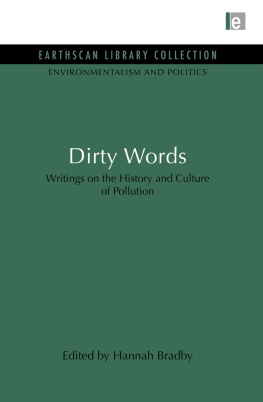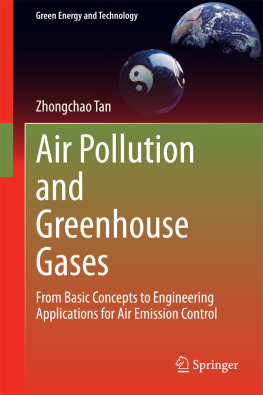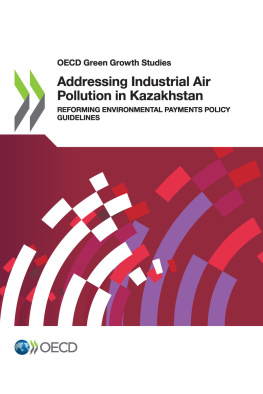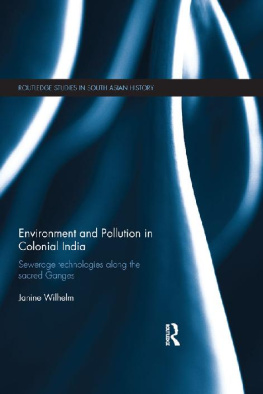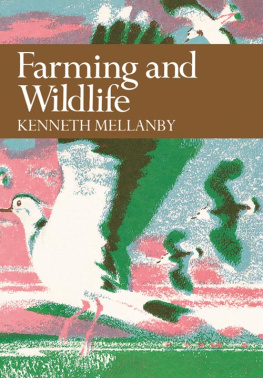
The New Naturalist series, now some way beyond its half century of volumes and its quarter century of years, has had much cause for gratitude to the senior officers of our kingdoms Nature Conservancy who have so valuably contributed to its books and its task.
It could be expected that a servant of a statutory body, when discussing problems of conservation and ecology of political, economic and social moment (as nearly all such problems are) might adopt a somewhat statutory tone of voice. None of our Natural Conservancy authors has yet done so; nor has Dr. Mellanby, who handles in this book what can be vulgarly described (if it is not mixing a biological metaphor) as the hottest potato in the nature business. The impact of modern industrys chemical products (themselves the products of vastly expensive and brilliant research) upon our environmentthe air we breathe, the water we drink, the food we eat, and the animals and plants with which we try peacefully to coexistis a subject so vast, so emotion-rousing, so socially provoking that almost anybody could be forgiven for approaching it with fearful frenzy on the one hand, or with careful dissemblance or even dissimulation on the other. Not so Mellanby: this is a calm book, and a deeply thought-out book, and patently a balanced book: the kind of book we expected from the leader of one of the finest teams of ecological analysts in the country. Of course we knew it would be so, when we persuaded the Director of the Monks Wood Experimenal Station to write it.
Kenneth Mellanbys approach is magnificently lucid, the more so because of his deft use of illuminative detail, alternating with wise generalisations that show the deepest understanding of the history of pollution and the eternal struggle of man against predators and pests. He has had to specialise in being general: be not only historian but geographer, physiographer, chemist and physicist as well as biologist to arrive at a sense of proportion and balance, and a true evaluation of the present tides and streams of wastes and poisons, their natural history, control, cause, cure and care.
This book has been written without fear or favour, and with the fairest analyses of mistakes and successes. It persuades us of the need for everybodys deeper understanding of the problems involved, and that our human stock, with the increase of its population and its civilised wants, has courted risks, certainly invited disasters and suffered a fewand yet may have succeeded in arriving at a point of common-sense confidence in a clean (or cleanish) planet in the predictable future. The planet is presently a pretty dirty one: but some clever ecologists and conservationists have voices that are now being heard, and may be heeded before it is too late.
All books on pesticides and pollution must be compared with the late Rachel Carsons classic Silent Spring of 1963, which started the general public of all the educated world wondering. Kenneth Mellanbys book is not of the same genre, and it would have been most inappropriate if it had been. Miss Carsons book was a chamber of horrors, and, as regards the insecticidal events of its time, as every responsible naturalist (including Dr. Mellanby) would agree, accurate. It did a power of good. This book, we predict, will do further good; for it does the next thing. It does not say how awful! for this has already been said, and in Rachel Carsons context justifiably. It says how does the business really work, and what next? and proceeds to spell it out, in a masterly style and depth that we are proud to be associated with.
THE EDITORS

In this book I have tried to deal with the subject of environmental pollution in Britain in an objective way. The public, and particularly those members of the public who are interested in the conservation of wild life, are very familiar with many types of pollution, but they cannot always judge their importance. Sometimes atomic radiation seems to be all-important, particularly when questions of military strategy are discussed. Our many fishless rivers are clear evidence of the serious effects of the pollution of fresh water, and every year our newspapers have pictures of dead seabirds covered with oil on our beaches. Great publicity has been given to agricultural chemicals. The remarkable impact of Rachel Carsons Silent Spring has suggested that insecticides are the greatest danger. I have deliberately avoided dealing with this book in the text, not because I underrate its contribution to the subject, but because I think that the time has come to try to look at all sides of the problem. Rachel Carson, when dealing with insecticides and herbicides, was careful to give us the facts as they applied to the United States, but she selected her facts, and gave us an advocates case. At the time, this was a useful service to science, and equally selective rejoinders from the chemical industry have done little to reassure the public. Other and more objective books on the effects of pesticides are listed in the bibliography. One of my main tasks has been to try to fit pesticides into the general picture of pollution from all sources.
The writer of a book like this needs to call on many others for help. Over a good many years I have discussed these problems with scientists from many countries, and I have tried to digest their views and the contents of their publications. The question of pesticides must have special mention. I have been fortunate in being able to discuss these problems with Dr. N. W. Moore, head of the Nature Conservancys Toxic Chemicals and Wild Life Section at Monks Wood Experimental Station, and with the members of his team. Dr. Moore was the first scientist in Britain to organise research work on this subject, and he and his colleagues have made major contributions towards the understanding of their problem. I have received immense help from them at all stages and have taken up a great deal of their time in detailed discussion. I hasten to add, however, that they are in no way to blame for any faults in my presentation of the subject.
The editors of this series have given valuable help. Sir Julian Huxley originally suggested that I should write this book, and made useful proposals as to its contents. Sir Dudley Stamp also gave me much encouragement, and the most courteous application of the spur whenever I fell behind my schedule. Without this I would never have finished the book. He read the manuscript and I shall treasure the appreciative letter he wrote me about it not long before his untimely death.
As I have already said, I have tried to make this book an objective account of pollution. I fear that I shall be attacked from all sides. In discussions I have been accused of exaggerating the dangerous effects of industrial processes and of beneficial agricultural chemicals. I have also been told that I play down the dangers of these substances. So long as the attacks do indeed come from these different quarters I shall not feel that I have entirely failed in my objective.
INTRODUCTION

This book is essentially an account of the way in which man is unintentionally contaminating his environment. This is a world-wide problem, but for the most part I am restricting my scope to consider the situation in Britain. I do this for two reasons, first because this treatment seems appropriate to a volume in the New Naturalist series, and secondly because although the problem is more acute in these small, developed and densely populated islands than in many other parts of the world, it is possible that what we do can help and guide others, and serve as a warning to prevent damage in the countries at present undeveloped which might otherwise accompany their economic development.

